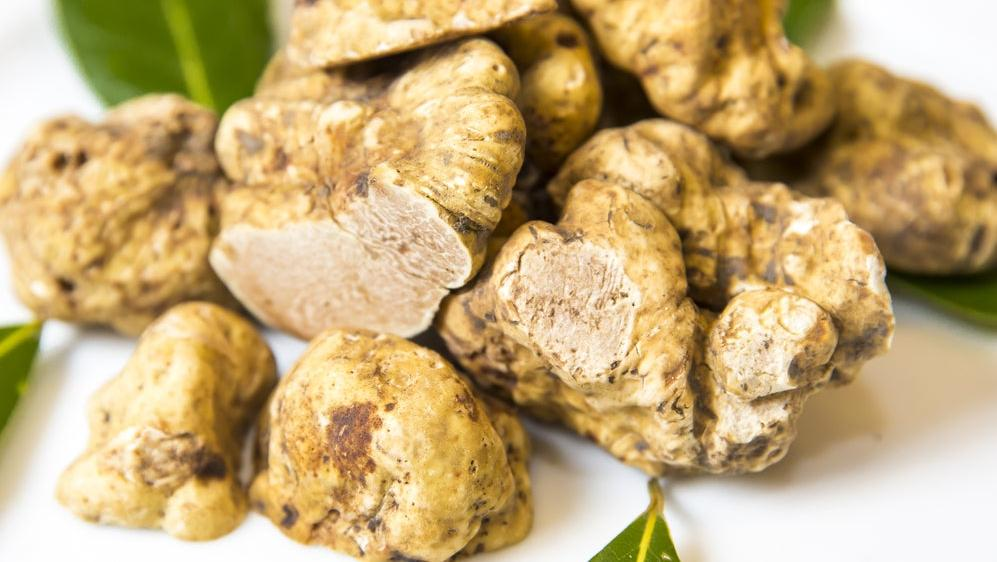This New Sweetener Sounds Too Good To Be True
Unlike other sweeteners, this one is a protein derived from a very fancy ingredient.
When you think about artificial sweeteners, the first one you think about is probably aspartame. But trade a new high-intensity sweetener is making a play in the marketplace whose sweetness is derived from an unlikely source: a type of truffle.
What is aspartame?
Aspartame is a non-nutritive sweetener, which means it has a negligible amount of calories (4 calories per gram). It's made up of two amino acids, aspartic acid and phenylalanine, and it's used to sweeten sugar-free drinks like Diet Coke.
Aspartame has been in the news a lot lately because the World Health Organization has deemed it as "possibly carcinogenic to humans," a designation that has caused a minor uproar among people who consume it on a regular basis. There's not too much to worry about, since the level of Diet Coke consumption that might be linked to health risks is highly unusual (about 18 cans per day). Still, the news might have people wondering about other alternative sweeteners, and that brings us to honey truffles.
What is a honey truffle?
The type of truffle around which new sweeteners are being developed is, appropriately, the honey truffle. It's a rare variety that grows in Hungary beneath black locust trees alongside the Danube River.
The South China Morning Post describes honey truffles as having "a gentle, almost nutty flavour profile," and true to their name, they boast "a deep, honey-like finish."
The company working on producing honey truffle sweetener is MycoTechnology, a Colorado-based food supplier specializing in applications of mycelia, the root-like structures of fungi. By doing this, the company aims to "solve the biggest challenges in the food industry."
Honey truffle sweetener, explained
While aspartame is made of amino acids, this honey-truffle-derived sweetener is a protein. Food Navigator explains that the sweetener has the same caloric content as other proteins, but since it's 1,500 to 2,500 times sweeter than sugar, any amount used to sweeten a product would be negligible in terms of caloric value.
The honey truffle sweetener allegedly has one special characteristic. The main gripe many people have with stevia and other artificial sweeteners is the bitter, lingering aftertaste, which can have the taste of licorice or even metal if it's used in too high a concentration. MycoTechnology meanwhile, claims that its sweetener has no aftertaste to speak of.
How cool would that be? I'm hoping we'll be able to kick stevia to the curb sometime in the future, since I'm really not a fan of that aftertaste ruining otherwise great products like hard seltzer.
The new honey truffle sweetener is expected to be commercialized in North America starting in 2025 or 2026. The protein is reproduced by fermentation technology, which means MycoTechnology will need to be able to scale up that process in order to be able to manufacture it for wider use—easier said than done.
The company believes it'll be labeled as "honey truffle sweetener" on ingredient lists. Maybe it will see me reaching for products I've historically shied away from. It's still early days, but I'm weirdly excited for any process that can claim to imitate sugar and then actually pull it off.
